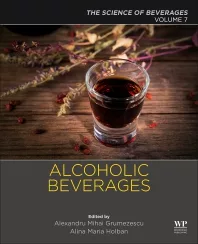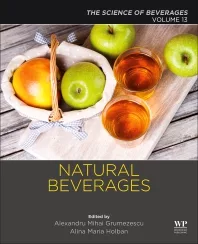Formulating Lower Carbohydrate Beverages
![]()
Formulating Lower Carbohydrate Beverages
Recent growth of products
containing lower and reduced levels of carbohydrates have created the
challenge of formulating beverages with physical stability and organoleptic
acceptance. Consumers are demanding more
choices for healthier diets without sacrificing product quality when making
those choices.
Lower carbohydrate beverages face the challenges of
maintaining body and mouthfeel when solids are removed. Physical stability
also becomes a concern as the removal of sugar and other solids may result
in problems with sedimentation and separation control.
There are unique benefits of FMC carrageenan and
Avicel cellulose gel (microcrystalline cellulose) when used in beverage
systems. The primary function of each is to stabilize beverages by
maintaining insoluble components in uniform suspension for the length of
the product’s shelf life. Additionally, there are the benefits of
preventing serum/phase separation and the stabilization of existing
emulsions to minimize fat/oil separation. These ingredients will also
impart or modify the texture and mouthfeel properties of finished
beverages, particularly when sugar solids are removed.
FMC BioPolymer offers cellulose gel and carrageenan
for their functionality as stabilizers, suspending agents, thickeners,
texture modifiers and dosage controllers. These ingredients provide the
qualities and superior stabilization normally found in full-sugar
beverages. FMC BioPolymer cellulose gel products yield essentially
“zero net carbs” as based on the
Atkins nomenclature. In addition to the multi-functional properties they
provide in beverage applications, Avicel
cellulose gel and FMC carrageenan contribute to the total level of
insoluble and/or soluble fiber content and follow “zero net
carb” nomenclature.
|
The science and art of Beverage Stabilization
Avicel cellulose gel is a water phase stabilizer.
While not water soluble, microcrystals form a colloidal dispersion in the
aqueous phase. The insoluble particles can stabilize both oil and water
phase ingredients. The physical, three-dimensional network and thixotropic
rheology (thixotropy) of Avicel and Avicel-plus cellulose gel provide a
stable matrix that allows for the suspension of heavy particulates, without
gelling or inhibiting flow. This characteristic is important in both water-
and milk-based beverages. When properly dispersed, they set up at the
oil-water interface of the beverage system to physically prevent oil
globules from coalescing and forming the “creaming” layer
commonly associated with unstable beverages. This defect can typically
occur during processing where homogenization or emulsification systems are
insufficient. However, the Avicel network is not weakened by temperature,
as is the case with soluble hydrocolloids. FMC products are, therefore,
useful stabilizers under high heat processing conditions, e.g. UHT and
retort.
Avicel-plus Cellulose Gel is also a co-processed product consisting
of microcrystalline cellulose co-processed with one or more value-added ingredients.
The Avicel-plus line was developed to address a variety of needs, including
improved mouthfeel, suspension with minimal thickening, suspension at low viscosity
and improved flavor release.
In low-carb beverage systems, one could improve the
quality and cost by replacing sugar and high fructose corn syrup with MCC
while maintaining the texture and rheological properties of a full-sugar
product. These benefits impart creaminess and added body, despite reduced
solids, through management of increased water.
Carrageenan
Carrageenan is the only soluble hydrocolloid capable
of permanently suspending cocoa in chocolate milk and other beverages.
Carrageenan provides stability in beverages via one of two means. The first
is through interaction with milk protein, which can form very weak
thixotropic gels at low concentrations. The second is through water binding
and increasing the viscosity of the fluid phase. Both systems offer
suspension of insoluble solids. At low concentrations below the gelation
temperatures of various types of carrageenan, thixotropic properties
result. Weak gels are formed that flow easily when poured; yet will
“re-heal” to uniformly suspend insoluble solids when allowed to
set quiescently. Various types of carrageenan can be used in combination to
aid in the overall physical stability of beverages while allowing for
manipulation of viscosity and textural properties.
Other gum/starch combinations will temporarily suspend
cocoa due to viscosity effects. However, these blends are heavy bodied and
may leave a gummy film on the tongue, which masks flavor receptors. The
functions/benefits of some FMC BioPolymer carrageenans traditionally used
for stabilization of dairy beverages include:
- Suspension of cocoa, calcium and other insoluble particulates
over prolonged storage periods
- Stabilization of fat and prevention of creaming
- Excellent flavor release
- Shear and heat stability throughout processing
- Does not require preheat treatment with milk before UHT pasteurization
- Has a uniquely wide spread between sedimentation and gelation
- Stabilization of fat and prevention of creaming
- Excellent flavor release
- Shear and heat stability throughout processing
- Does not require preheat treatment with milk before UHT pasteurization
- Has a uniquely wide spread between sedimentation and gelation
As multi-functional stabilizers, FMC BioPolymer Avicel, Avicel-plus
and FMC BioPolymer carrageenans are odorless, tasteless and non-caloric. They
can favorably impact the processing, texture and stability of reduced-sugar
and low-carb beverages.
For more information, contact Ross White, applications
manager, or Bruce Poulterer, dairy business development manager, at FMC BioPolymer,
Philadelphia, Pa.; 800/526-3649 or fmcbiopolymer.com
Looking for a reprint of this article?
From high-res PDFs to custom plaques, order your copy today!






